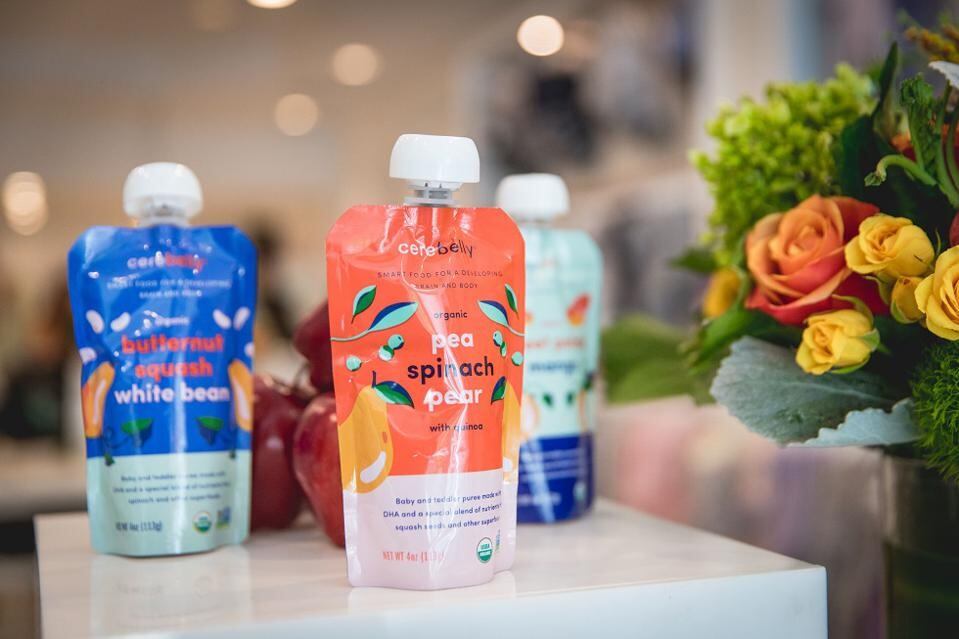Read FoodNavigator-USA's coverage of the report and the baby food companies' responses HERE and HERE.
In one such lawsuit* filed against Plum, PBC (owned by Campbell Soup Company) in California, plaintiff Ludmila Gulkarov argues that she “would not have paid this money had she known that the contaminated baby food contained excessive degrees of heavy metals.”
Although there are no federally mandated thresholds set for lead, cadmium and mercury in infant foods (the FDA has only set limits for the presence of inorganic arsenic in infant cereals, at 100ppb), the trace levels of heavy metals found in Plum Organics products are “excessive," claims Gulkarov.
Parents, she adds, “expert the food they feed their infants and toddlers to be free from heavy metal substances known to have significant and dangerous health consequences.”
According to the report, one Plum product contained 39ppb inorganic arsenic, although the others all tested negative; lead levels ranged from 1-6ppb; mercury from 0.1-0.7ppb; and cadmium from 0.5-24ppb.
In a similar case*** filed vs Hain Celestial Group (maker of the Earth's Best baby food brand), plaintiff Alyssa Mays argues: "Contrary to the representations made on the label and packaging of the products, the products contain heavy metals including arsenic, cadmium and lead at levels above what is considered safe for babies. In addition, the arsenic contained in the ingredients of the product is inorganic despite defendant's labeling all of the products as organic."
Campbell Soup (Plum Organics): 'We do intend to defend this case vigorously'
A Campbell Soup spokesperson told FoodNavigator-USA that it intended to defend the case vigorously: “Campbell is confident in the safety and quality of our products. The company does not comment on pending litigation, but we do intend to defend this case vigorously.”
Responding to allegations in the report (which are then referenced in the lawsuit) that, “Campbell provided a spreadsheet self-declaring that every one of its products meets criteria’ but declined to state what those criteria are," a spokeswoman told us last week that Campbell tested all of its products and relied on standards set by various other bodies for guidance in the absence of FDA regulations.
"Given the lack of specific FDA guidance on baby food, Campbell used standards from California’s Proposition 65, the EU and the WHO, along with general guidance from the FDA on lead not specific to baby foods—to develop a testing protocol for evaluating whether heavy metals in Plum Organics’ products exceeded levels that independent authorities had determined to be acceptable.”
The spokeswoman added: "Campbell has conducted testing on every Plum Organics product on the market to ensure none exceed acceptable levels of arsenic, lead, cadmium, or mercury."
As to procurement strategies for high-risk ingredients, she said: "This issue has been and continues to be on the radar of our procurement team. We also share our quality requirements and guidelines for heavy metals with our external partners, including our contract manufacturers."
Gerber: 'We fully stand behind the safety of all of our products'
Gerber has also been hit with a lawsuit alleging violations of consumer protection laws.**
The complaint - filed in New Jersey - alleges: “Gerber used … sweet potatoes with 48ppb lead. Gerber also used 12 other batches of sweet potato that tests over 20ppb for lead, the EU’s upper lenient standard… Gerber uses multiple batches of carrots containing as much as 87ppb cadmium, and 75% of the carrots Gerber used had more than 5ppb cadmium, the EPA’s drinking water standard.”
Gerber does not comment on pending litigation, but told FoodNavigator-USA that, “We fully stand behind the safety of all of our products, including the products that were the subject of this report. At Gerber, babies are our highest priority. The standards we have in place for the safety and quality of our baby foods are industry-leading, and among the strictest in not just the U.S., but the world.”
Speaking to us last week, a spokesperson said: “Where government standards don’t currently exist, we develop our own rigorous standards.”
Procurement protocols
To minimize the presence of metals in crops that naturally accumulate contaminants from soil, Gerber takes “multiple steps including prioritizing growing locations based on climate and soil composition; approving fields before crops are planted based on soil testing; rotating crops according to best available science; and testing of produce, water, and other ingredients,” the spokesperson said.
Gerber also is a founding member of the Baby Food Council, a group comprising baby food companies (Beech-Nut, Hain/Earth’s Best, Gerber, Danone/Happy Family Organics), academics, government, and NGO partners and advisors on a mission to reduce heavy metals in baby foods using best-in-class management practices, noted the spokesperson.
Hain Celestial: 'Disappointed that the Subcommittee report examined outdated data'
Robin Shallow, spokesperson for Hain Celestial (Earth's Best), said, "We do not comment on litigation." However, Shallow stressed in an earlier email responding to the subcommittee report, that, "Our rigorous internal standards and testing procedures ensure Earth’s Best products meet or exceed the current federal guidelines.
"In addition, we work collaboratively with the Baby Food Council (composed of other manufacturers, the Environmental Defense Fund and Cornell University), the FDA and USDA to continuously refine and improve upon the standards to ensure our products exceed safety and nutrition standards – including reducing the levels of heavy metals that occur naturally in soil and water.
“We are disappointed that the Subcommittee report examined outdated data and does not reflect our current practices," added Shallow, noting that following a meeting with the FDA, Hain "took several steps to reduce the levels of heavy metals in our finished products, including no longer using brown rice in our products that are primarily rice based, changing other ingredients and conducting additional testing of finished product before shipping."
A spokesperson for Beech-Nut Nutrition – which has also been hit with a class action lawsuit - said: “We’ve received the complaint and plan to respond appropriately through the legal process after we’d had the opportunity to thoroughly review it. Out of respect for the legal process, we do not comment on any pending or threatened litigation.”
Attorney: Cases reflect 'halo theory' in food litigation
Attorneys contacted by FoodNavigator-USA said such lawsuits deploy a kind of ‘halo theory’ increasingly featuring in proposed class actions in which plaintiffs claim that reasonable consumers (in this case, parents of babies/young children) would not expect to see any level of contaminants, pesticide residues, heavy metals and so on in foods that present themselves as healthy and nutritious.
And in the absence of safe harbor levels for most heavy metals specific to baby food, plaintiff’s attorneys will likely continue to file such complaints given that “there isn’t a specific threshold you can point to and claim protection,” said one legal source.
Companies can reduce their legal vulnerability by setting up rigorous internal protocols and compliance systems, but after reports like this, food manufacturers will likely be lobbying state and federal agencies to set safe harbor levels, he predicted.
*The case is Gulkarov et al v Plum, PBC 3:21-cv-00913 filed in the Northern District of California on Feb 5, 2021.
**The case is Shepard et al v Gerber Products 2:21-cv-01977, filed in New Jersey, Feb 5, 2021.
***Mays v Hain Celestial Group, 1:21-cv-01185 filed in New York, Feb 9, 2021
Further reading:
- Baby food brands defend protocols as congressional report alleges ‘highly dangerous’ levels of heavy metals in infant foods; expect lawsuits, says attorney
- Heavy metals in baby food: How should the food industry respond?
- ‘The agency has failed to adequately regulate baby food…’ NY attorney general urges FDA to set standards for heavy metals
While there are no federally mandated upper limits for lead, mercury and cadmium in baby foods, the FDA sets maximum allowable levels in bottled water at 10 ppb inorganic arsenic, 5 ppb lead, and 5 ppb cadmium, while the EPA has capped the allowable level of mercury in drinking water at 2 ppb.
According to the congressional report, the test results of baby foods and their ingredients “eclipse those levels: including results up to 91 times the arsenic level, up to 177 times the lead level, up to 69 times the cadmium level, and up to 5 times the mercury level.”
The FDA has also set limits on lead in juice [50ppb lead], and candy [0.1ppm lead], and has proposed a 100ppb limit on inorganic arsenic in infant rice cereals.
*Readers interested in hot topics in food labeling and litigation can get a 10% discount at the ACI’s virtual Food Law summit May 12-13, which will cover other topics including the labelling of plant-based 'milk' and 'meat', CBD and cannabis, trades and tariffs under the Biden administration, the role of influencers and user-generated content, and recalls and crisis management. FoodNavigator-USA readers can save 10% with Code: D10-825-825FX01




